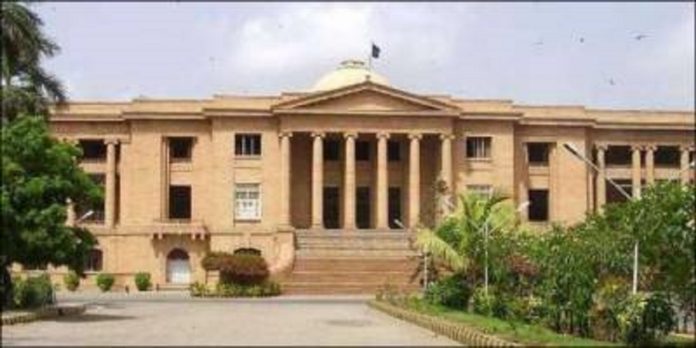The Sindh High Court on Monday rejected the bail pleas of former provincial education secretary Noor Muhammad Leghari and Education Department’s special section officer Dr Kishore Kumar in a corruption reference filed by the National Accountability Bureau (NAB).
The judgment authored by Justice Muhammad Iqbal Kalhoro, head of a two-judge bench, issued the verdict in light of recent Supreme Court and SHC rulings on the authority of NAB chairman.
“It is settled that a wrong reference to a particular provision of law under which either an act or omission has been done would not make such actor’s omission illegal, if otherwise, the power to act or omit to act is available under the law to the authority concerned,” read the judgment.
NAB, in its reference, has alleged that the duo made 294 illegal appointments in the Special Education Wing of the education department that caused Rs250 million loss to the national exchequer.
The accountability watchdog claims that Leghari, in connivance with co-accused, made direct appointments against various posts in special education department without due process. They claimed that the to draw a veil over the illegal appointments, he constituted a backdated recruitment committee and got offer letters issued to such appointees.
Whereas, Dr Kishore Kumar is accused of aiding and abetting him in the offence and issuing offer letters to 294 appointees without verifying the validity or authenticity of the process.
Counsel for Dr Kishore Kumar pleaded his innocence on the ground that he was not deputed in the education department when the alleged appointments were made. He added that his client only issued appointment letters after receiving orders from the secretary.
Justice Kalhoro pointed out that that there was material which showed that although a medical doctor, Kumar got himself posted in the education department as a section officer.
“There was an apparent bizarreness in the list of candidates, each one was shown with 99 marks. Plus there was no record to support even their candidacy, let alone each one having earned the same marks. Yet, instead of getting alarmed and playing his part with due caution expected of a public officer in such circumstances he went ahead and issued the offer orders,” ruled Justice Kalhoro.
Leghari’s counsel questioned his custody on the ground that after the filing of the reference NAB chairman was left with no authority to issue an arrest warrant against him under section 24(a) of NAO, 1999.
He argued that if at all a warrant needed to be issued against him, it was to be under section 24(c) and that too only when on the apprehension that the accused would abscond.
To this point, Justice Kalhoro referring to judgments of the apex court held: “in presence of sufficient material/evidence and reasonable grounds to believe that an accused has committed the offence, his fundamental right to liberty enshrined in Article 9 can be curtailed and he can be taken into custody.”
